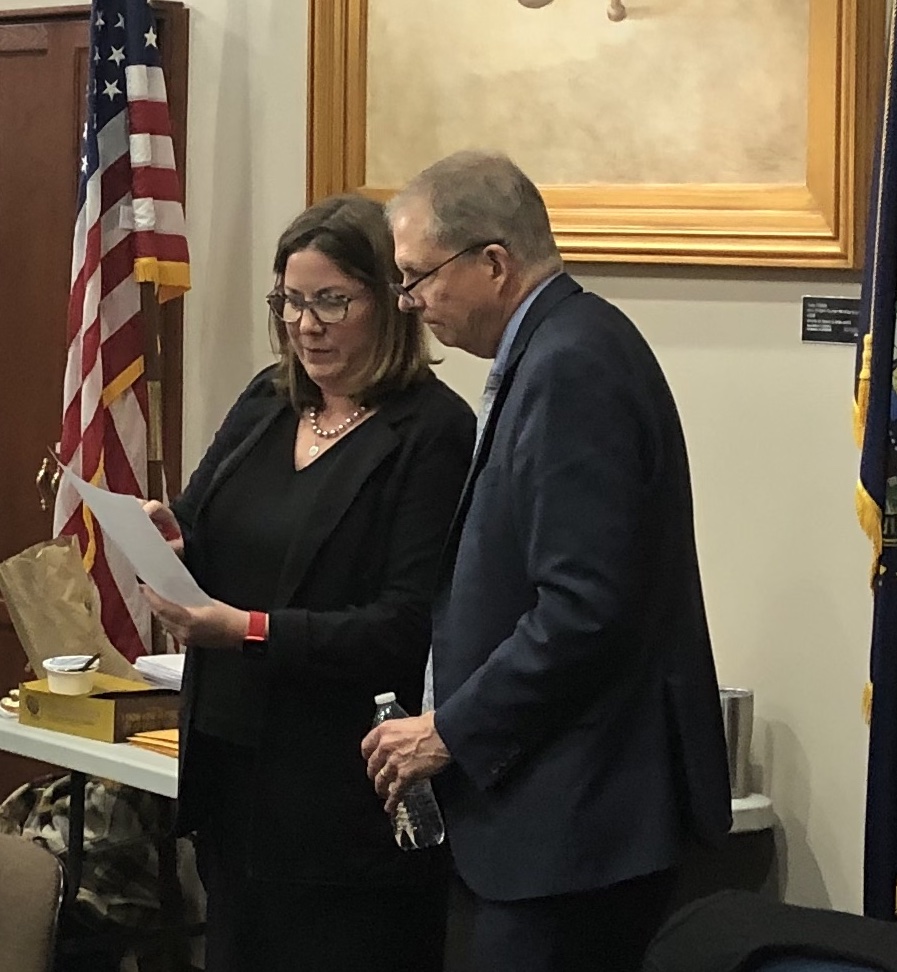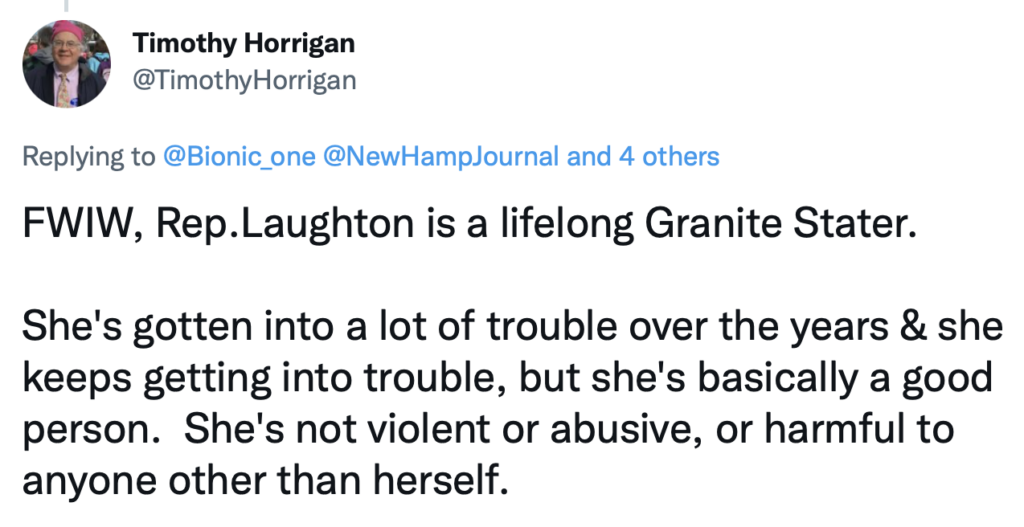Former NH Rep. Merner Busted for Voting After Moving — And House Leaders Knew

Maybe Republican former state Rep. Troy Merner should not have answered the door in his underwear when an investigator from the New Hampshire Attorney General’s Office knocked at the Carroll home where he lives.
Maybe he should have resigned from his elected positions when he moved to the home outside his district. Or maybe someone in the State House should have acted when they were alerted about Merner’s residency in December 2022.
That was when top lawyers with the New Hampshire Department of Justice, Myles Matteson and Anne Edwards, called Terry Pfaff, the Chief Operating Officer of the General Court, to inform him of Merner’s living situation, according to records made available Tuesday. House Speaker Sherman Packer (R-Londonderry) acknowledged Tuesday he was informed last December as well.
Merner was allowed to continue to represent the district he no longer lived in for months.
The New Hampshire Attorney General’s Office announced Tuesday it is charging Merner, 63, for wrongful voting, theft by deception, and unsworn falsification. The charges are the next act in a legal drama that started a year ago.
Formella’s office did not make Merner’s residency problem public until this March after it received a complaint that Merner had voted in Lancaster’s municipal election. Merner continued to serve in the House until September, when Formella’s office sent a memo to Packard confirming Merner did not live in Lancaster.
However, according to the records, investigators and attorneys inside Formella’s office knew Merner did not live in Lancaster as early as December of last year.
Packard said in a statement released Tuesday night he was aware of the December call to Pfeff, but Merner disputed that he did not meet the residency requirement.
“Allegations against Merner were made in December 2022, and the General Court was made aware that Merner disputed and contested those allegations then. Merner continued to attest to the General Court through signed official paperwork that his residence was in Lancaster,” Packard said. “The details of Merner’s admissions relative to his residing outside of his district were not brought to the attention of the Speaker’s Office until September when the Department of Justice investigation had concluded.”
Merner was a Lancaster selectman and a state representative for Lancaster, Dalton, North Cumberland, and Stratford. The only problem is that he lives in Carroll, having moved there in the summer of 2022 with his new wife, Janet Nelson. After moving, Merner was elected to the House to represent Coos District 1 in November 2022.
Merner did not respond to a call Tuesday. He claimed, according to statements made to investigators, that his out-of-district residency was well known, and he was encouraged by others to continue serving, though he did not name his supporters.
The affidavit filed in the case depicted a man who seemed not to realize he was doing anything wrong.
“State Rep. Merner told (Investigator Anna) Brewer-Croteau that he could not believe that someone actually complained to (the attorney general), further stating that he (State Rep. Merner) has done so much for the town of Lancaster,” the affidavit written by Investigator Thomas Defosses stated.
A Lancaster resident contacted the New Hampshire Attorney General’s Office a week after the 2022 election to report Merner was no longer living in town, and that the fact was well-known in Lancaster.
Merner sold his Lancaster home in the summer of 2022 and moved to Carroll after marrying Nelson. He claimed he had an arrangement with the buyer of his former home that he could temporarily stay in a room there, but he often stays overnight in an office he’s rented in Lancaster.
In his Dec. 5 meeting with Brewer-Croteau, during which he was in his boxers and a T-shirt and eating cereal, Merner said he planned to finish his terms as a selectman and state representative but not stand for reelection in 2024 since he no longer lived in Lancaster.
Lancaster Town Manager Benjamin Gaetjens-Oleson was aware of the issue when Brewer-Croteau interviewed him, saying he had fielded many complaints about Merner’s residency. But, Gaetjens-Oleson felt he could not do anything since Merner was technically his boss.
Gaetjens-Oleson reportedly warned Merner about his residency problem, saying it was “going to cause an upheaval with the locals.”
Merner would later tell Investigator Richard Tracy he had to keep on as a selectman since he was the only member of the board who did any work.
Tracy was assigned to the case after Fenella’s office got a complaint about Merner voting in the March elections in Lancaster. Merner told Tracy he thought voting was OK even though he did not live there.
“(He) said he had not heard back from the Attorney General’s Office since he spoke with (Investigator) Brewer-Croteau, and he did not think he was doing anything wrong,” the affidavit states.
At that point, Tracy had established Merner was not regularly sleeping in the office he rented in Lancaster, as the neighbors attested they did not see him. When confronted with that, Merner claimed he thought it would be OK if he had an address in Lancaster and worked at the town offices regularly.
Now that his residency was out in the open, the investigation was on. Investigators found Merner had been submitting mileage expenses to the General Court for round trips to Concord from Lancaster and not Carroll. Lawmakers can get reimbursed for their trips to Concord to serve their constituents.
A round trip from Lancaster to Concord is about 202 miles, while the Carroll to Concord trip is about 176 miles, meaning Merner was overcharging taxpayers to get to work. According to the affidavit, Merner overcharged taxpayers a total of $973 throughout his entire term.
Merner was ousted from the House in September and resigned as a Lancaster selectman in October. He is now facing prison time, as the wrongful voting charge is a class B misdemeanor which carries a possible three-and-a-half to seven-year prison sentence. He is due to be arraigned on Dec. 28.














